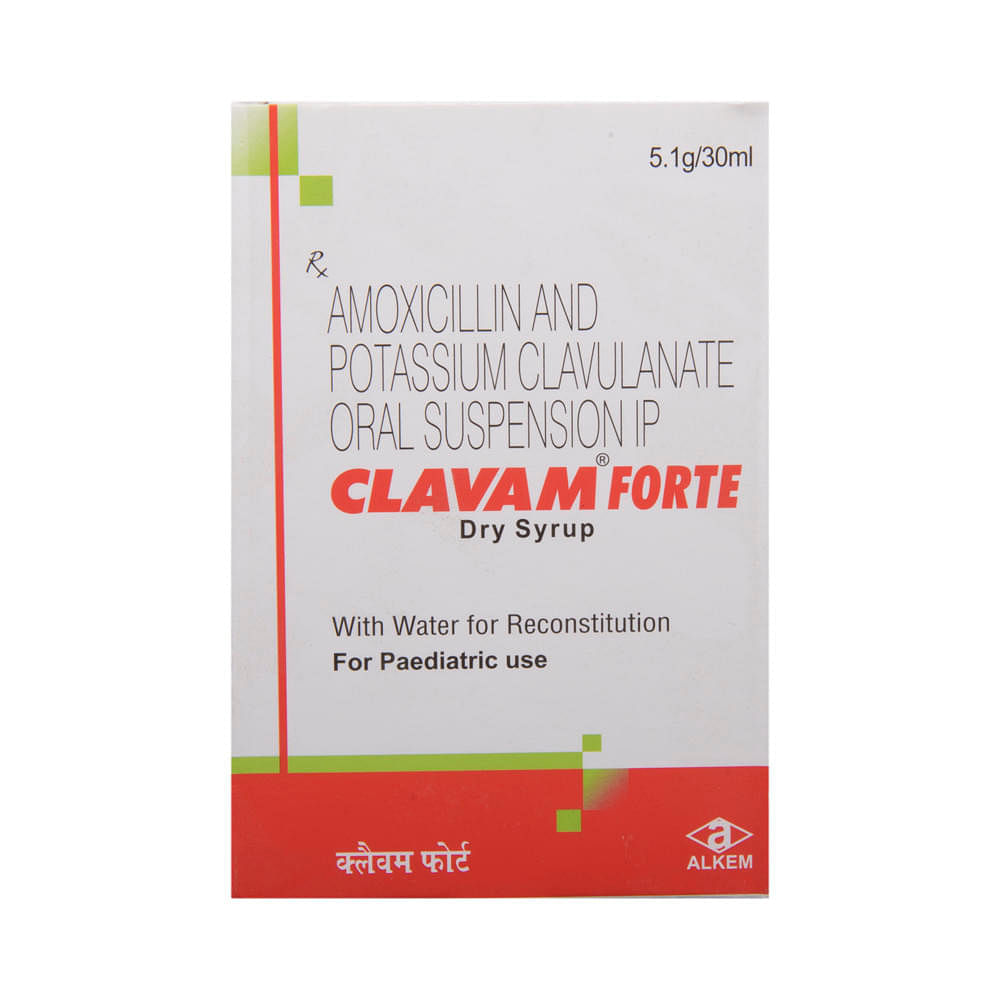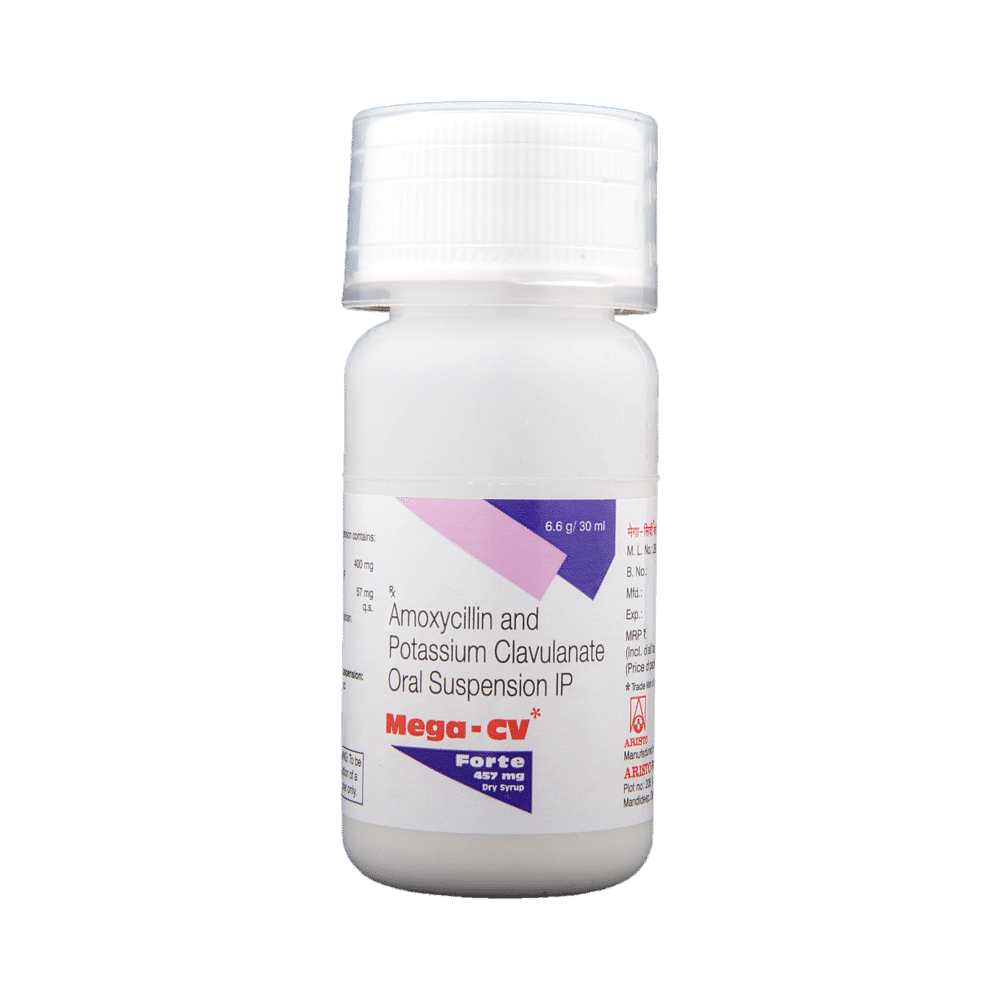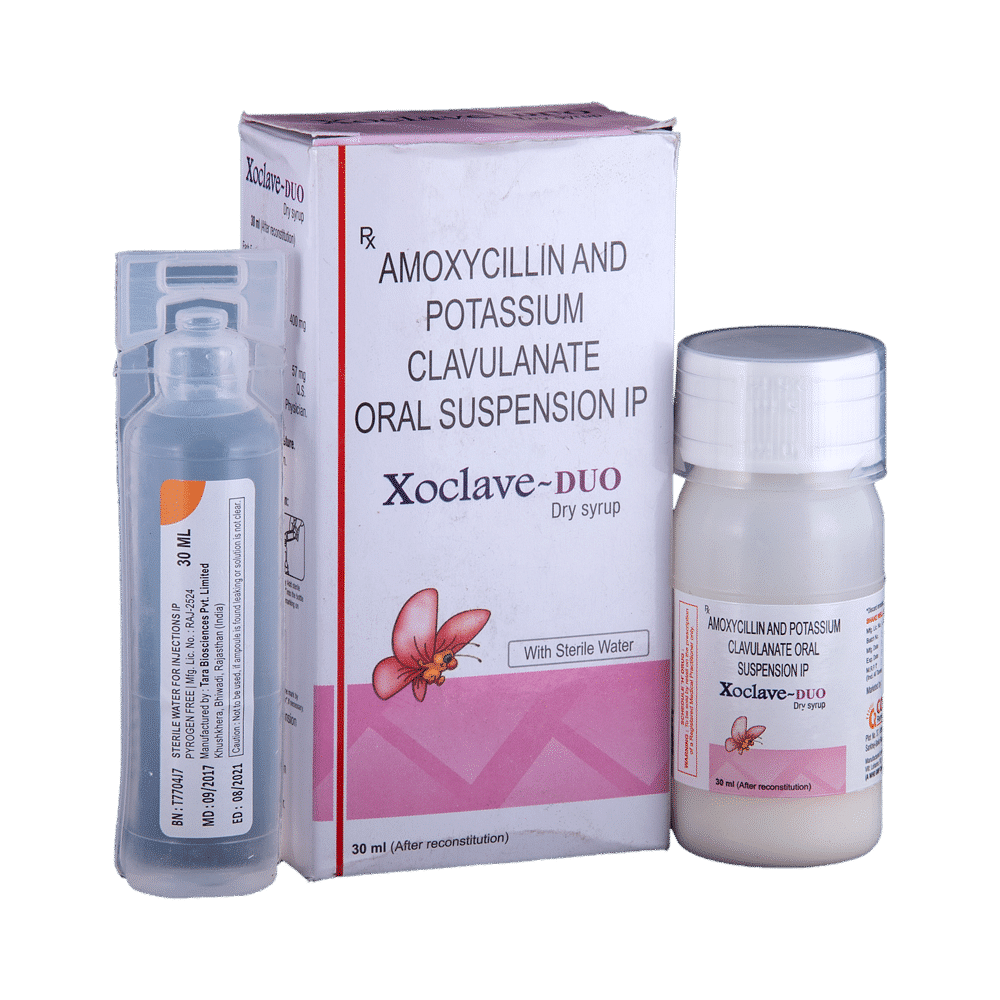
Duodict Dry Syrup
Manufacturer
Associated Biotech
Salt Composition
Amoxycillin (400mg/5ml) + Clavulanic Acid (57mg/5ml)
Key Information
Short Description
Duodict Dry Syrup is an antibiotic medicine that helps treat bacterial infections of the ear, nose, throat, chest, lungs, teeth, skin, and urinary tract.
Dosage Form
Dry Syrup
Introduction
Duodict Dry Syrup is an antibiotic medicine that helps treat bacterial infections of the ear, nose, throat, chest, lungs, teeth, skin, and urinary tract. It is capable of killing bacteria that have become resistant to other therapies and thus also helps treat tuberculosis that is resistant to other treatments.
Directions for Use
Never give Duodict Dry Syrup to your child until and unless prescribed by the doctor. You must also never share your child’s medicine with anyone else even if they show similar symptoms.
Safety Information
Side Effects
No common side effects listed.
How it works
Duodict Dry Syrup is an antibiotic. It has two active agents amoxycillin and clavulanic acid. Amoxycillin works by preventing the formation of the bacterial protective covering (cell wall) essential for the survival of the bacteria. Whereas clavulanic acid serves a special purpose of inhibiting an enzyme (beta-lactamase) that is produced by resistant bacteria. This makes the combination of amoxycillin and clavulanic acid an effective line of treatment for many types of infections.
Quick Tips
Check ‘expiry’ before giving Duodict Dry Syrup to your child. Immediately discard all the expired medicines. Stop Duodict Dry Syrup immediately if your child develops an itchy rash, facial swelling, or breathing difficulty. Report to the doctor without any delay.
Related Medicines

Clavam Forte Dry Syrup

Mega-CV Forte 457mg Oral Suspension

Megamox-CV Duo Dry Syrup

Ibiclav Dry Syrup

Agunex CV DS Dry Syrup

Xoclave -Duo Dry Syrup

Yevoclav Plus Dry Syrup

Amoxytill CV Dry Syrup

Proclav Dry Syrup

Clawmac DS Dry Syrup
Frequently asked questions
Can other medications be administered concurrently with Duodict Dry Syrup?
Concurrent administration of Duodict Dry Syrup with other medications is possible. However, it is crucial to inform the healthcare provider about all medications your child is currently taking before starting Duodict Dry Syrup. This allows for safe and comprehensive medication management, considering potential interactions.
Can vaccination be administered during treatment with Duodict Dry Syrup?
Generally, antibiotics do not interfere with vaccines or cause adverse reactions in children after vaccination. However, the child's doctor should always advise about the timing of vaccinations and when to administer them. The child should receive the vaccine as soon as they are well, but if the illness is still present, postpone the vaccination until recovery is complete.
What lab tests may be performed during long-term Duodict Dry Syrup therapy?
Periodically monitoring kidney and liver function tests during prolonged treatment with Duodict Dry Syrup can help assess your child's condition. This should be done by a healthcare professional based on your child's individual needs.
Can a higher than recommended dose of Duodict Dry Syrup be administered to my child?
It is highly discouraged to exceed the recommended dosage. Increasing the dose could lead to more severe side effects and may not improve the treatment's effectiveness. If you notice any worsening symptoms, consult your child's doctor for re-evaluation.
Is it safe to stop giving Duodict Dry Syrup when the symptoms abate?
No, discontinuing treatment prematurely could be harmful. It is essential to complete the prescribed course of Duodict Dry Syrup as directed by your healthcare provider. This ensures complete eradication of the infection and prevents potential relapse.
Can Duodict Dry Syrup cause diarrhea?
Yes, Duodict Dry Syrup can sometimes lead to diarrhea due to its antibiotic properties which may disrupt healthy gut bacteria and balance. If your child experiences diarrhea, ensure they drink fluids, and contact the doctor if it persists or shows signs of dehydration (reduced urination with dark-colored and strong-smelling urine). Consult a healthcare professional for proper guidance before administering any other medication.
Do all viral common colds lead to bacterial infection?
Most cases of common colds do not develop secondary bacterial infections. In fact, using antibiotics without consulting a doctor when dealing with a cold can cause unwanted side effects and increase the risk of complications.
What does yellow or green mucus from my child's nose indicate?
Yellow or green mucus in the nose during a common cold is not always a sign of a bacterial infection. This change in color and consistency is normal for viral infections, often lasting 7-10 days. It is important to consult with your child's healthcare provider if you have any concerns about these symptoms.
Are there any signs indicating my child needs immediate medical attention?
If your child experiences severe allergic reactions (difficulty breathing, rash), gastrointestinal distress (diarrhea) and liver damage (weakness, paleness, vomiting), call a healthcare professional immediately. These are potential side effects that require prompt intervention.


